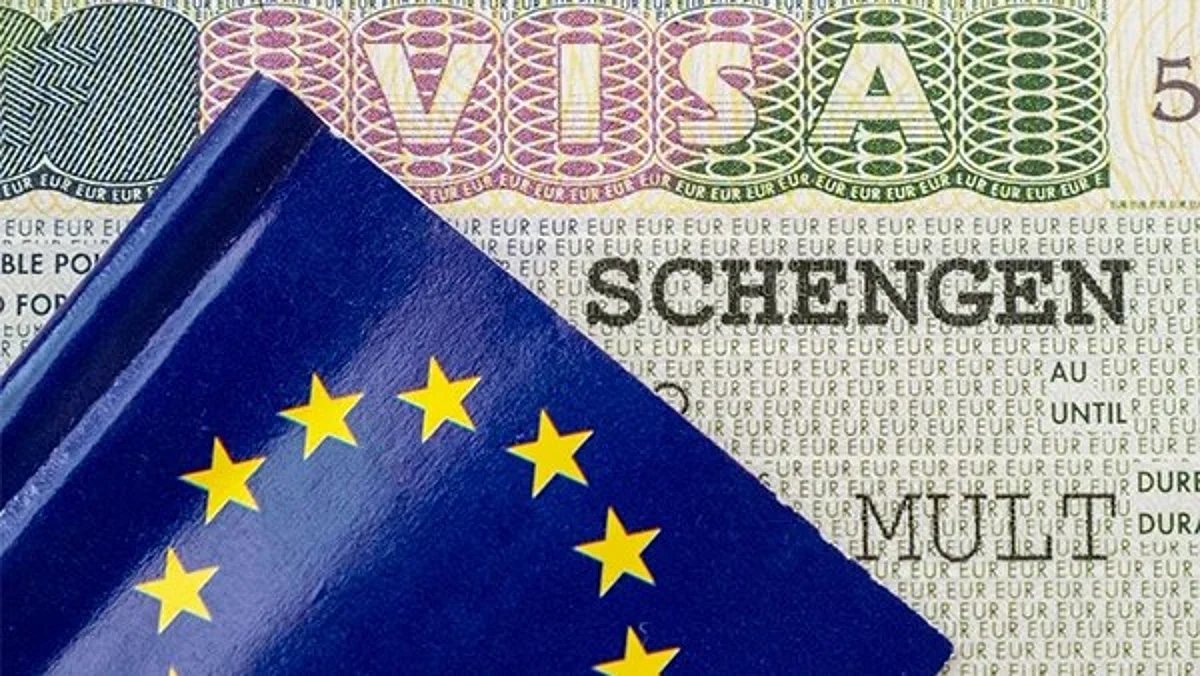Tips & Advices
Turkey Sets the Stage for an Extraordinary Travel Experience with Essential New Guidelines and Expert Advice for British Vacationers Seeking Adventure and Peace of Mind

Wednesday, July 30, 2025
Turkey continues to stand out as a top destination for British tourists, offering an unparalleled blend of rich culture, stunning landscapes, and vibrant resorts. With the recent implementation of new travel guidelines, travelers are encouraged to stay informed and prepared to ensure a seamless trip. These updates, including passport validity requirements and the importance of securing comprehensive travel insurance, are crucial for avoiding any potential travel disruptions. As British vacationers seek unforgettable adventures in Turkey, understanding and adhering to these new regulations will not only guarantee smooth entry into the country but also ensure peace of mind throughout their journey.
The UK’s Foreign, Commonwealth and Development Office (FCDO) has recently issued updated travel guidance for those planning trips to Turkey. The FCDO plays a vital role in representing the government’s interests abroad and ensuring the safety of UK citizens traveling overseas. With Turkey remaining a top destination for British travelers, it’s essential to stay informed about new travel restrictions and guidelines, especially as millions of UK visitors head to Turkish resorts each year.
While Turkey continues to be one of the most popular vacation spots for Brits, offering beautiful landscapes, rich culture, and numerous holiday resorts, travelers must be aware of the latest updates on travel procedures. Many UK tourists choose to use international eSIMs to stay connected abroad, but recent developments have prompted travel experts to issue new warnings regarding Turkish travel, urging all holidaymakers to take necessary precautions.
Juan David Soler, a travel expert from Holafly, has strongly advised British tourists to make necessary arrangements before their trip. Soler emphasized that anyone planning a Turkish getaway should act promptly to address the latest travel requirements and avoid potential disruptions. One crucial step is to ensure that travelers have adequate travel insurance that covers both their itinerary and unexpected emergencies during their stay. Having comprehensive coverage is essential for ensuring peace of mind while abroad, as it guarantees protection against unforeseen circumstances.
When preparing for a trip to Turkey, research is key. Understanding the latest travel advisories and the specific entry requirements for UK nationals is critical for a smooth journey. One significant aspect to note is that British citizens do not need a visa for short visits to Turkey. UK nationals are allowed to stay in the country for up to 90 days within a 180-day period for tourism or business purposes, making it easier for holidaymakers to plan their vacations without the hassle of additional documentation.
However, while a visa may not be necessary for short visits, there are still certain conditions that travelers must meet when entering Turkey. A critical requirement is that a British citizen’s passport must be valid for at least 150 days beyond the date of arrival. Additionally, travelers must ensure that their passport contains at least one blank page for entry and exit stamps. These stipulations are vital to ensure a smooth entry into the country.
Before heading to Turkey, it’s essential for British travelers to double-check all travel documents with their provider. This includes verifying passport validity, ensuring that all requirements are met, and considering the renewal of their passport if it is nearing its expiration date. By doing so, travelers can avoid any last-minute complications and prevent delays that could arise at the border.
Another aspect of preparation is to take note of any local regulations and potential restrictions related to COVID-19 or other health and safety concerns. Given the constantly evolving nature of international travel rules, it’s always advisable to stay updated on the current situation and be flexible with travel plans. Checking reliable sources such as the FCDO’s website and consulting with airlines or travel agencies can provide the latest information on health advisories and entry requirements.
In addition to researching travel documents, tourists should also be mindful of the local culture, customs, and the specific activities they plan to pursue during their stay. This may involve understanding local customs, respecting cultural differences, and being aware of local laws to ensure an enjoyable and trouble-free experience in Turkey.
Lastly, securing travel insurance that specifically covers the destination, activities, and potential emergencies is highly recommended. Insurance policies that account for things such as lost baggage, medical emergencies, and cancellations offer peace of mind, ensuring that tourists are fully prepared for any unexpected events that may arise during their trip. Many insurance providers also offer travel packages that include coverage for the specific activities one may engage in, such as sightseeing tours or water sports, providing tailored protection for all aspects of the journey.
Turkey remains a top destination for British travelers, offering rich culture and stunning resorts. New travel guidelines and essential tips ensure a smooth, unforgettable experience, making it crucial to stay informed and prepared.
while Turkey remains a dream destination for millions of British tourists, travelers must stay vigilant and well-informed about the latest entry requirements and travel restrictions. By following expert advice, ensuring passports and travel documents are up to date, and investing in comprehensive travel insurance, British tourists can have a smooth and enjoyable trip to Turkey without unnecessary stress or complications.
Tips & Advices
The Ring of Fire, Earth’s Most Volatile Seismic Zone

The boundaries of a number of significant tectonic plates, including the Pacific, Indo-Australian, Eurasian, North American, and Philippine Sea plates, chiefly define the Ring of Fire. From South America’s southern coast, it extends across North America’s western seaboard, over the Bering Strait to Japan, then descends through Southeast Asia and ends in the South Pacific. The existence of subduction zones, when one tectonic plate is thrust beneath another, makes this area especially unstable. Numerous earthquakes and volcanic eruptions are caused by the tremendous pressure created by these geological interactions.
Tips & Advices
Chase Lounge Access Rules, Disappointing Fairmont Waterfront Vancouver, Do You Have Travel Insurance, Order Delta Metal Tags and Delta AI Ticket Updates

Advertiser Disclosure: Eye of the Flyer, a division of Chatterbox Entertainment, Inc., is part of an affiliate sales network and receives compensation for sending traffic to partner sites, such as CreditCards.com. Some or all of the card offers that appear on the website are from advertisers. Compensation may impact how and where card products appear on the site. This site does not include all card companies or all available card offers. Opinions, reviews, analyses & recommendations are the author’s alone, and have not been reviewed, endorsed, or approved by any of these entities. Some of the links on this page are affiliate or referral links. We may receive a commission or referral bonus for purchases or successful applications made during shopping sessions or signups initiated from clicking those links.
Ouch! I am feeling so old this week. Let me explain. We have a fireplace insert in our living room and burn wood during the winter. It is so nice. But our massive shed was almost empty and I was worried. But then this week, with temps in the 250* heat index range (I exaggerate a little) my neighbor had a HUGE maple tree taken down. So I spent days cutting and splitting and stacking. Gosh I need a vacation now to enjoy stuff like this from the blog this week:
Chris asks the question “Do Chase Sapphire Reserve®® Members Get Priority Access to Chase Sapphire Lounges?” I don’t mind telling you page views for this post were off the charts. Take a look and see what everyone is wondering about.
One of our frequent floaters, Michael stayed at the Fairmont Waterfront Vancouver before an NCL cruise. He said he would NOT return. The hotel was not happy with his review and emailed us (i.e. Chris, the blog’s majority owner) their displeasure with the post. I think the post and review is very good – see if you agree.
For me the value of holding a yearly travel policy is a no brainer. There are times I let it lapse for a few months but generally I am always insured when I travel. Is it worth it? Chris goes over the reasons why he and I both hold a policy and things to consider.
A while back Delta allowed us to order Delta medallion tags. They are custom and metal and I have to say kinda neat. I can confirm that, for now, they are letting you order a second set if you want to. This may not last long fyi.
There is one person at Delta corp. I really do not like. Well maybe two or three but the main one is the guy who has the world upside down angry with the suggestion that the airline is going to use AI to get the MAX money out of each and everyone who flies Delta. Well maybe not so fast.
Lastly Chris has a PSA about keeping your seat belts on when up in the air as we were again reminded this week. I always have mine on even when sleeping unless I am up going to the lavatory.
Have a great August weekend everyone and I can not believe we are only weeks away from the start of football season and with the fall will be just around the corner. Where did the summer go? – René
Advertiser Disclosure: Eye of the Flyer, a division of Chatterbox Entertainment, Inc., is part of an affiliate sales network and receives compensation for sending traffic to partner sites, such as CreditCards.com. Some or all of the card offers that appear on the website are from advertisers. Compensation may impact how and where card products appear on the site. This site does not include all card companies or all available card offers. Opinions, reviews, analyses & recommendations are the author’s alone, and have not been reviewed, endorsed, or approved by any of these entities. Some of the links on this page are affiliate or referral links. We may receive a commission or referral bonus for purchases or successful applications made during shopping sessions or signups initiated from clicking those links.
Responses are not provided or commissioned by the bank advertiser. Responses have not been reviewed, approved or otherwise endorsed by the bank advertiser. It is not the bank advertiser’s responsibility to ensure all posts and/or questions are answered.
Tips & Advices
Say goodbye to visa stickers as Schengen Visa goes digital by 2028

The European Union is set to transform the way travelers obtain Schengen visas, moving to a completely digital system that will eliminate traditional paper applications and physical visa stickers by 2028. This major overhaul promises to streamline the application process and enhance security measures.
Schengen visa allows non- EU nationals to travel within the Schengen Area, which consists of a group of 29 European countries, for stays of up to 90 days within a 180-day period.
According to a report by The Economic Times, the new system will replace the familiar visa sticker with a secure, encrypted 2D digital barcode, marking a significant leap toward technological innovation in travel documentation.
How the digital system works
The digital transformation got its first real-world test during the 2024 Paris Olympics, where France successfully issued 70,000 digital Schengen visas featuring barcodes. Under the new system, travelers will simply scan these barcodes at border checkpoints, giving immigration officials instant access to personal and visa information through a centralized EU database.
The fully online experience will allow applicants to upload required documents, track their application status in real-time, and complete fee payments digitally. Once approved, travelers receive a digitally signed barcode visa. While first-time visitors to Europe must still provide biometric data in person, subsequent applications will follow a more streamlined process.
Application process remains structured
Despite going digital, the fundamental application steps remain consistent:
Embassy selection: Applicants must choose the embassy of their primary destination country. For multi-country trips, apply through the nation where you’ll spend the most time, or if time is equal, the first country of entry. Most countries work with VFS Global, though Spain uses BLS International in India, and France requires appointments through its Démarches Simplifiées platform.
Document requirements: Essential documents include a valid passport with six months validity and two blank pages, the completed application form, photographs, travel insurance with minimum €30,000 coverage, flight and accommodation bookings, a cover letter, and financial documentation including 3-6 months of bank statements and salary slips or International Transaction Reporting System (ITRs).
Biometric data collection: First-time applicants must provide fingerprints and photographs, with data stored in the EU’s Visa Information System. This requirement is waived if biometric information was collected within the previous 59 months.
Fee structure: Standard visa fees remain at approximately €80 for adults and €40 for children aged 6-12, with no charge for those under 6. Service fees through VFS or BLS range from ₹1,800 to Rs 2,200.
Processing timeline: Typical processing takes 15 calendar days, though this can extend to 30 or 60 days during busy periods or for complex applications.
Strategic tips for Indian applicants
Experts recommend applying 30-60 days before travel, as applications are accepted up to six months in advance. However, last-minute applications within 15 working days should be avoided to minimise delay risks.
For faster processing, consider applying through embassies like Lithuania, Latvia, or Estonia, which often complete reviews within 7-10 days and maintain lower rejection rates.
Some embassies, particularly Germany and France, may require in-person interviews. Applicants should be prepared to clearly explain their travel itinerary, financial situation, and intention to return to India.
A significant change affects German visa applications: starting July 1, 2025, Germany eliminated informal appeals, requiring all rejected applications to go through formal legal procedures.
Indian nationals who have successfully used two Schengen visas within three years may now qualify for multi-year validity visas (2 or 5 years) under the EU’s “cascade” regime, offering greater convenience for frequent travelers.
The digital transformation represents the EU’s commitment to modernizing travel processes while maintaining security standards, promising a more efficient experience for millions of travelers worldwide.
-

 Brand Stories2 weeks ago
Brand Stories2 weeks agoBloom Hotels: A Modern Vision of Hospitality Redefining Travel
-

 Brand Stories1 week ago
Brand Stories1 week agoCheQin.ai sets a new standard for hotel booking with its AI capabilities: empowering travellers to bargain, choose the best, and book with clarity.
-

 Destinations & Things To Do2 weeks ago
Destinations & Things To Do2 weeks agoUntouched Destinations: Stunning Hidden Gems You Must Visit
-

 Destinations & Things To Do1 week ago
Destinations & Things To Do1 week agoThis Hidden Beach in India Glows at Night-But Only in One Secret Season
-

 AI in Travel2 weeks ago
AI in Travel2 weeks agoAI Travel Revolution: Must-Have Guide to the Best Experience
-

 Brand Stories4 weeks ago
Brand Stories4 weeks agoVoice AI Startup ElevenLabs Plans to Add Hubs Around the World
-

 Brand Stories3 weeks ago
Brand Stories3 weeks agoHow Elon Musk’s rogue Grok chatbot became a cautionary AI tale
-

 Asia Travel Pulse4 weeks ago
Asia Travel Pulse4 weeks agoLooking For Adventure In Asia? Here Are 7 Epic Destinations You Need To Experience At Least Once – Zee News
-

 AI in Travel4 weeks ago
AI in Travel4 weeks ago‘Will AI take my job?’ A trip to a Beijing fortune-telling bar to see what lies ahead | China
-

 Brand Stories4 weeks ago
Brand Stories4 weeks agoChatGPT — the last of the great romantics













You must be logged in to post a comment Login